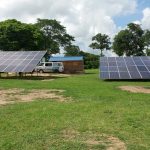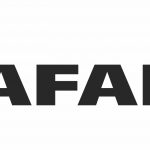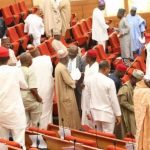Economy
Tinubu Rolls Out Initiatives to Crash Rising Prices of Food
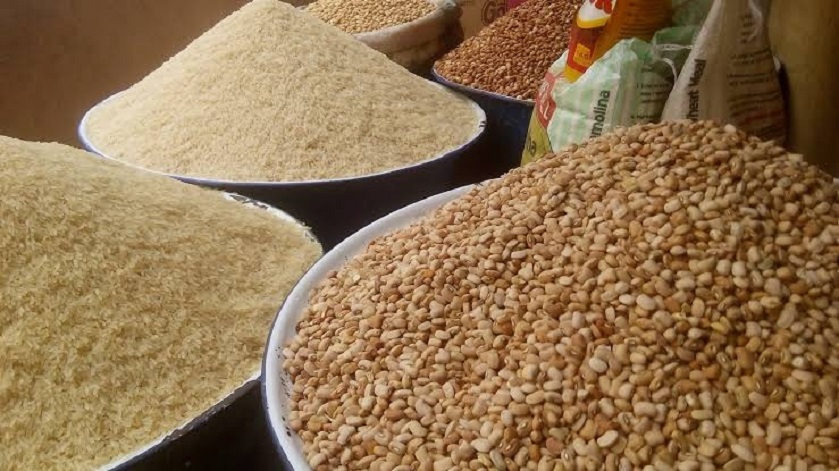
By Modupe Gbadeyanka
President Bola Tinubu has announced some initiatives he intends to use to bring down the rising prices of food in the country, declaring a state of emergency in food security.
Addressing newsmen in Abuja on Thursday, the Special Adviser to the President on Special Duties, Communications and Strategy, Mr Dele Alake, said his boss wants to ensure citizens never go to bed hungry again.
He said his government would invest in agriculture and provide security for farmers to enable them to work on their farms without fear.
“As a direct and immediate response to this crisis, a number of initiatives will be deployed in the coming weeks to reverse this inflationary trend and guarantee future uninterrupted supplies of affordable foods to ordinary Nigerians,” the President said through his spokesman.
He stated that fertilizers and grains would be immediately released “to farmers and households to mitigate the effects of the subsidy removal.”
According to him, this should make food available to many in Nigeria, adding that efforts would be made to stabilise food prices.
“We shall create and support a National Commodity Board that will review and continuously assess food prices as well as maintain a strategic food reserve that will be used as a price stabilisation mechanism for critical grains and other food items,” he added.
Read the full statement below:
As a hands-on- leader who follows developments across the country every day, Mr President is not unmindful of the rising cost of food and how it affects the citizens. While availability is not a problem, affordability has been a major issue for many Nigerians in all parts of the country. This has led to a significant drop in demand, thereby undermining the viability of the entire agriculture and food value chain.
Accordingly, in line with this administration’s position on ensuring that the most vulnerable are supported, Mr President has declared, with immediate effect, the following actions:
- That a state of emergency on food security be announced immediately, and
- That all matters pertaining to food & water availability and affordability, as essential livelihood items, be included within the purview of the National Security Council.
As a direct and immediate response to this crisis, a number of initiatives will be deployed in the coming weeks to reverse this inflationary trend and guarantee future uninterrupted supplies of affordable foods to ordinary Nigerians.
As with most emergencies, there are immediate, medium- and long-term interventions and solutions…
In the immediate term, we intend to deploy some savings from the fuel subsidy removal into the Agricultural sector, focusing on revamping the agricultural sector.
In an earlier meeting with Agriculture Stakeholders (today), we drafted a memorandum of partnership between the government and the individual stakeholder representatives that encompasses the decisions taken and actions proposed from our engagements.
The immediate intervention strategies are as follows:
- We will immediately release fertilizers and grains to farmers and households to mitigate the effects of the subsidy removal.
- There must be an urgent synergy between the Ministry of Agriculture and the Ministry of Water Resources to ensure adequate irrigation of farmlands and to guarantee that food is produced all year round.
As a country, Mr President has made it clear that we can no be comfortable with seasonal farming. We can no longer afford to have farming down times.
- We shall create and support a National Commodity Board that will review and continuously assess food prices as well as maintain a strategic food reserve that will be used as a price stabilisation mechanism for critical grains and other food items.
Through this board, the government will moderate spikes and dips in food prices.
To achieve this, we have the following stakeholders on board to support the intervention effort of President Bola Ahmed Tinubu: The National Commodity Exchange (NCX), Seed Companies, National Seed Council and Research institutes, NIRSAL Microfinance Bank, Food Processing/Agric Processing associations, private sector holders & Prime Anchors, smallholder farmers, crop associations and Fertilizer producers, blenders and suppliers associations to mention a few.
- We will engage our security architecture to protect the farms and the farmers so that farmers can return to the farmlands without fear of attacks.
- The Central Bank will continue to play a major role of funding the agricultural value chain.
- Activation of land banks. There is currently 500,000 hectares of already mapped land that will be used to increase the availability of arable land for farming which will immediately impact food output.
– Mechanization and land clearing- The government will also collaborate with mechanization companies to clear more forests & make them available for farming
- River basins- there are currently 11 river basins that will ensure the planting of crops during the dry season with irrigation schemes that will guarantee continuous farming production all year round to stem the seasonal glut and scarcity that we usually experience.
- We will deploy concessionary capital/funding to the sector, especially towards fertilizer, processing, mechanization, seeds, chemicals, equipment, feed, labour, etc.
The concessionary funds will ensure food is always available and affordable thereby having a direct impact on Nigeria’s Human Capital Index (HCI). This administration is focused on ensuring the HCI numbers, which currently rank as the 3rd lowest in the world, are improved for increased productivity.
- Transportation and Storage: The cost of transporting Agricultural products has been a major challenge (due to permits, toll gates, and other associated costs). When the costs of moving farm produce are significantly impacted- it will immediately be passed to the consumers, which will affect the price of food- the government will explore other means of transportation, including rail and water transport, to reduce freight costs and, in turn, impact the food prices.
As for storage, existing warehouses and tanks will be revamped to cut waste & ensure efficient preservation of food items.
- We will Increase revenue from food and agricultural exports. As we ensure there is sufficient, affordable food for the populace, we will concurrently work on stimulating the export capacity of the Agric sector.
- Trade Facilitation: Transportation, storage and export will be improved by working with the Nigerian Customs, who have assured us that the bottlenecks experienced in exporting and importing food items as well as intra-city transportation through tolling, will be removed.
These are some of the immediate interventions this government will put in place to tackle this crisis.
Principally, one of the major positive outcomes of these interventions will be a massive boost in employment and job creation.
Indeed, agriculture already accounts for about 35.21 per cent of employment in Nigeria (as at 2021), the target is to double this percentage to about 70% in the long term.
President Bola Ahmed Tinubu’s mandate to create jobs for our teeming youth population will be achieved with between 5 to 10 million more jobs created within the value chain, working with the current 500,000 hectares of arable land and the several hundreds of thousands more farmlands to be developed in the medium term.
In closing, this administration understands that food and water are the bedrock of survival and therefore is calling on all Nigerians to partner with us in ensuring the success of this strategic intervention. This administration is working assiduously to ensure that Nigerians do not struggle with their essential needs.
President Bola Ahmed Tinubu wishes to use this medium to continue to assure Nigerians that this administration will not relent in its efforts until all strategic interventions are deployed efficiently and effectively and until every household is positively impacted. Our president is the president of all Nigerians and the father of the nation. The renewed hope mandate remains alive, and no one, absolutely no one, will be left behind.
Economy
Dangote Refinery Denies Importing Petrol, Diesel into Nigeria
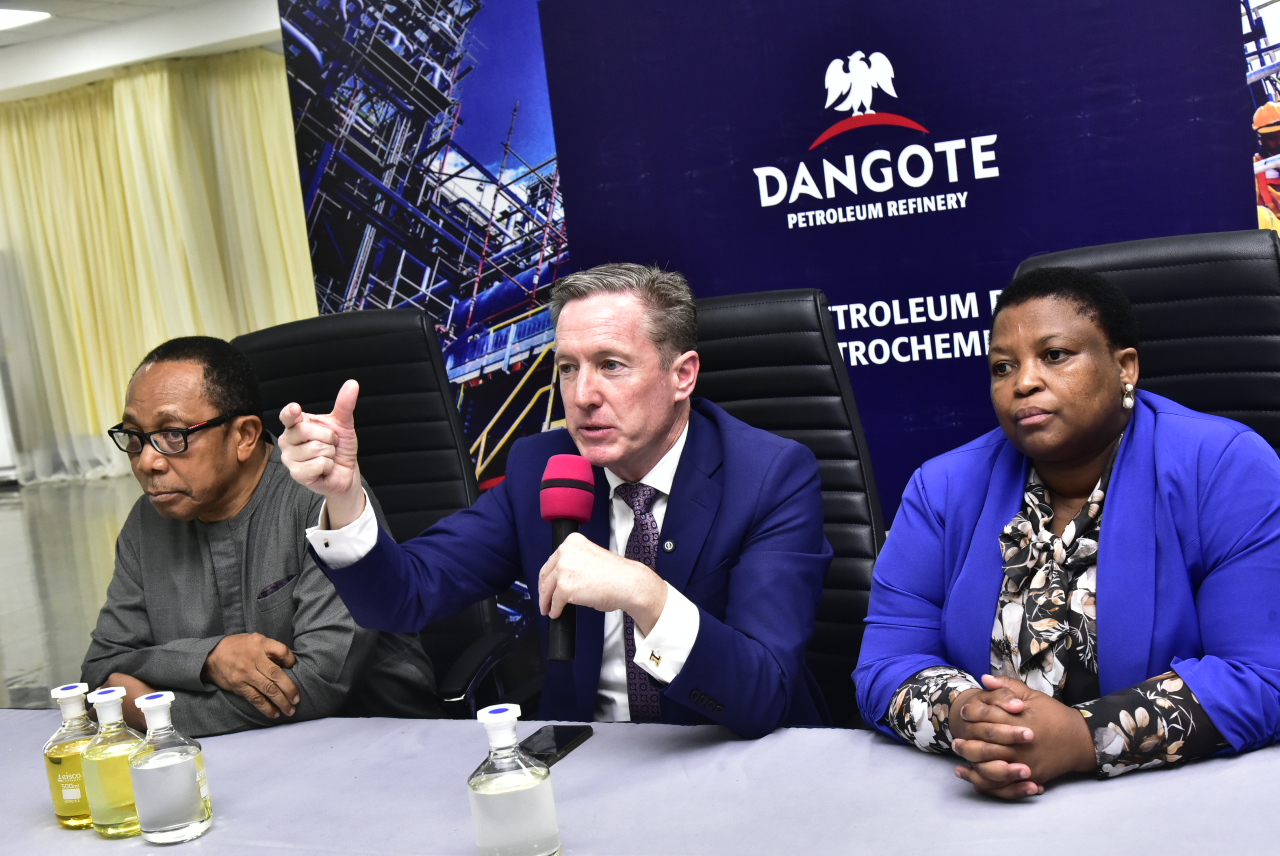
By Modupe Gbadeyanka
Dangote Petroleum Refinery and Petrochemicals has described reports making the rounds that it was importing finished petroleum products like premium motor spirit (PMS), otherwise known as petrol, diesel, and others into Nigeria as false and misleading.
In a chat with newsmen on Wednesday, the company clarified that what it brought into the country were merely intermediate or semi‑processed materials, which it emphasized is a standard practice within the global refining industry.
Intermediate materials—such as naphtha, straight‑run gas oil, vacuum gas oil (VGO), reformate, alkylate and isomerate—serve as feedstock for additional refining into finished fuels like petrol and diesel, as well as petrochemicals.
The chief executive of the facility, Mr David Bird, told journalists in Lagos that as a state‑of‑the‑art and large‑scale merchant refinery, DPRP refines crude oil and processes intermediate feedstocks into premium petroleum products and petrochemicals that meet the highest international standards, noting that this practice does not amount to importing finished petroleum products.
Mr Bird highlighted that Dangote Refinery operates using a European and Asian merchant refinery model, which integrates advanced refining, blending and trading systems designed to meet modern quality and environmental benchmarks.
“DPRP produces high‑quality fuels aligned with international environmental and health standards. Our gasoline is lead‑free and MMT‑free with 50 parts per million sulphur, while our diesel meets ultra‑low sulphur specifications. These standards help reduce emissions, protect engines, and safeguard public health,” the chief executive stated.
Mr Bird reaffirmed that the Dangote Refinery supplies only fully refined, market‑ready products, adding that semi‑finished fuels are unsuitable for vehicles and are therefore not released into the Nigerian market. Samples of both intermediate feedstocks and fully refined products were displayed to journalists during the briefing.
He further noted that the refinery was established to end years of exposure to substandard fuel in Nigeria by providing products that meet stringent global standards, adding that DPRP’s products are now exported to international markets, highlighting their quality and competitiveness.
The refinery chief stressed the company’s commitment to transparency in its operations and engagements with regulators, urging the media to help properly educate the public on the clear distinction between intermediate products and finished fuel.
“It is unfortunate that some individuals are deliberately spreading misleading narratives about a refinery that has transformed Nigeria and the West African region from a dumping ground for substandard fuels into a hub for high‑quality products,” he said, adding that the refinery’s flexible design allows it to process a diverse mix of crude oils and intermediate feedstocks into premium finished fuels.
Mr Bird assured Nigerians of sustained product availability, noting that the refinery has contributed significantly to easing fuel scarcity, stabilising the naira, and reducing pressure on foreign exchange.
On his part, the Chief Brand and Communications Officer of Dangote Industries Limited, Mr Anthony Chiejina, urged journalists to be precise in their choice of terminology, warning that inaccurate reporting could misinform the public and create unnecessary panic.
Economy
Nigeria to Overtake Algeria as Africa’s Third-Largest Economy in 2026—IMF
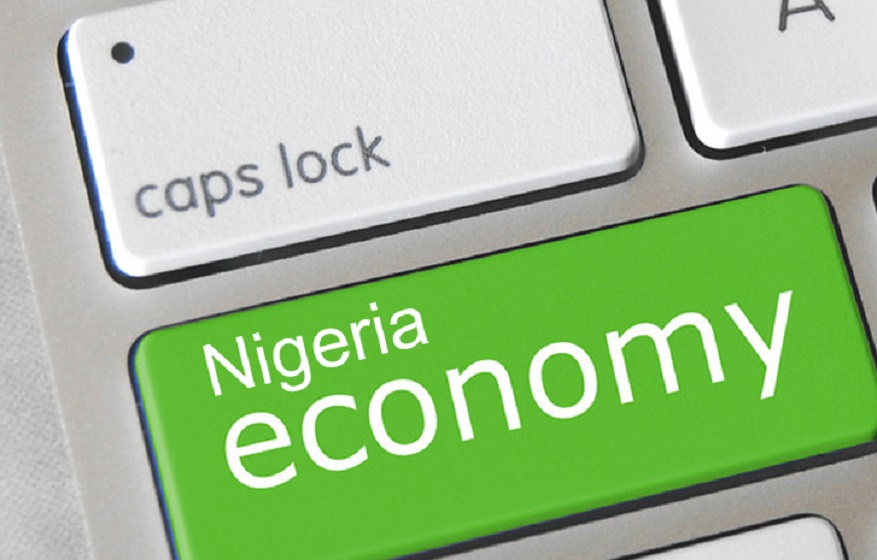
By Adedapo Adesanya
Nigeria is projected to move from being the become the third-largest economy in Africa in 2026 from the fourth position it clinched last year, according to data from the International Monetary Fund (IMF).
In the IMF’s World Economic Outlook (October 2025 edition), accessed via its datamapper, it was indicated that Nigeria’s gross domestic product (GDP) at current prices stood at about $285 billion in 2025, placing it behind South Africa, Egypt and Algeria.
South Africa topped the African ranking with a GDP of about $426 billion, followed by Egypt at $349 billion, and Algeria ranked third with $288 billion.
However, the IMF forecasts that Nigeria will overtake Algeria in 2026 as economic output rebounds, driven by higher oil production, improved foreign exchange liquidity and the impact of ongoing economic reforms.
According to the IMF’s projections, Nigeria’s GDP is expected to rise to $334 billion, putting it ahead of Algeria ($284 billion) and making it Africa’s third-largest economy, behind South Africa ($443 billion) and Egypt ($399 billion).
The lender’s outlook reflects expectations that recent reforms, including petrol subsidy removal, exchange-rate liberalisation and fiscal adjustments, will support medium-term growth, despite short-term inflationary pressures.
Africa’s largest economy’s position has shifted in recent years amid currency devaluations, rebasing exercises and macroeconomic headwinds across major economies on the continent. Nigeria in 2024 lost its status as Africa’s largest economy and dropped to fourth place after a series of Naira devaluations and wider reforms.
However, these appear to have brought about macro reliefs in the near term. On January 19, the IMF reviewed its forecast for Nigeria’s economic growth rate upward to 4.4 per cent in 2026. The Bretton Woods organisation revised the rate upward from its initial projection of 4.2 percent.
Prior to that, on January 13, the World Bank also increased its projection for Nigeria’s economic growth rate for 2026 to 4.4 percent from the 3.7 percent forecast in June 2025.
The federal government expects the Nigerian economy to grow by 4.68 per cent in 2026, supported by easing inflation, improved foreign exchange stability and continued fiscal reforms.
According to the Minister of Finance and Coordinating Minister of the Economy, Mr Wale Edun, the country’s inflation, which peaked above 33 per cent in 2024, declined to 15.15 per cent by December 2025, adding that foreign exchange volatility has eased, with the Naira trading below N1,500 to the Dollar, while external reserves rose to $46 billion.
He added that GDP growth averaged 3.78 per cent by the third quarter of 2025, with 27 sectors recording expansion.
Economy
Lafarge to Expand Sagamu, Ashaka Cement Plants to 5.5MT Per Annum
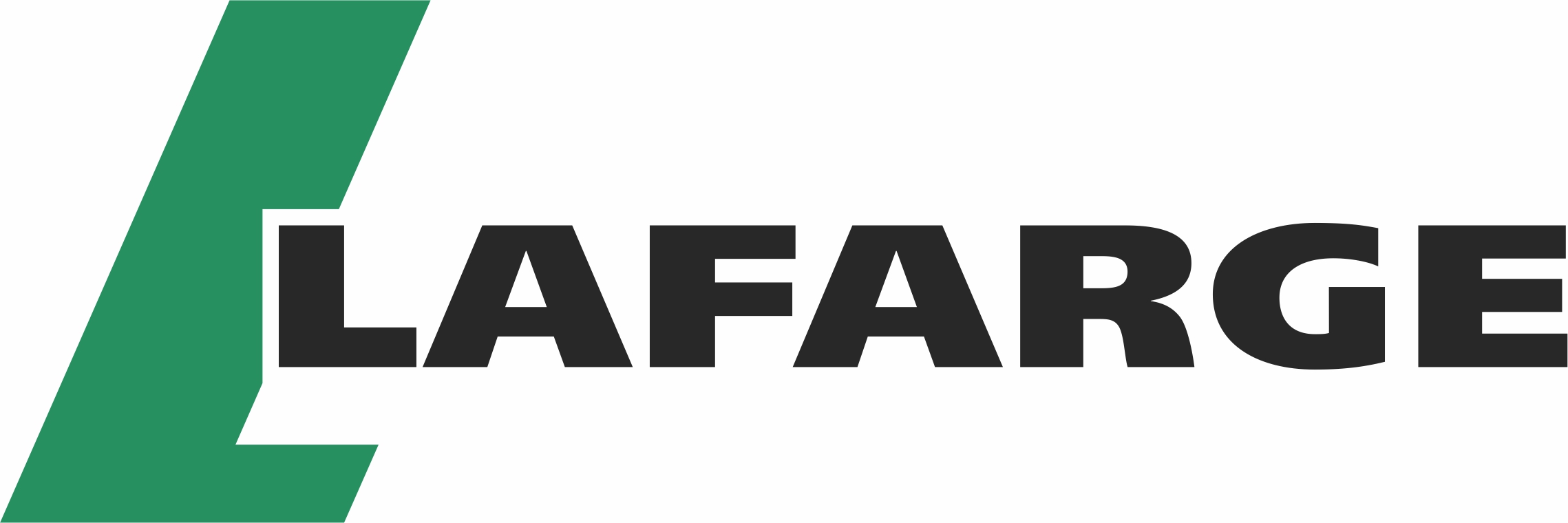
By Aduragbemi Omiyale
One of the leading cement firms, Lafarge Africa Plc, has confirmed plans to expand its plants in Gombe and Ogun States to about 5.5 million metric tonnes per annum.
In a notice to the Nigerian Exchange (NGX) on Wednesday, the company said it was strengthening local cement production with the expansion of its Sagamu Cement Plant in Ogun State and Ashaka Cement Plant in Gombe State.
It noted that the upon completion of the expansion projects, the production capacity of the Ashaka Cement in Gombe State would rise to 2 MT per annum, while the Sagamu facility would increase to 3.5 MT per annum.
The two new plants, the statement disclosed, would be dry plants with preheater kilns, vertical raw mills and roller presses for cement mills to make them energy efficient.
The disclosure signed by the company secretary, Adewunmi Alode, further revealed that the plants are expected to improve product availability and enhance Lafarge Africa’s ability to serve customers efficiently across key markets.
This expansion is coming after the announcement made last year that Huaxin Building Materials Group’s had acquired 83.81 per cent of Lafarge Africa and demonstrates their commitment to Nigeria’s infrastructural development.
The chief executive of Lafarge Africa, Mr Lolu Alade-Akinyemi, stated that the expansion projects reflect the company’s long-term confidence in Nigeria’s growth potential and are aimed at supporting Nigeria’s infrastructure and construction needs.
He explained that the project goes beyond capacity growth to deliver operational and sustainability benefits but also supports value creation for our customers and shareholders while contributing to economic activity and job creation across our host communities and the wider construction ecosystem.
“The expansion of our plants is a strategic investment that reinforces Lafarge Africa’s role in supporting national development. By increasing capacity at our flagship plants, we are strengthening our supply chain, improving our responsiveness to market demand, and positioning the business to better support critical sectors such as housing, commercial construction, and infrastructure.
“It enables us to integrate modern production technologies that enhance efficiency, reliability, and environmental performance, in line with our commitment to responsible operations,” Mr Alade-Akinyemi, stated.
-

 Feature/OPED6 years ago
Feature/OPED6 years agoDavos was Different this year
-
Travel/Tourism9 years ago
Lagos Seals Western Lodge Hotel In Ikorodu
-

 Showbiz3 years ago
Showbiz3 years agoEstranged Lover Releases Videos of Empress Njamah Bathing
-

 Banking8 years ago
Banking8 years agoSort Codes of GTBank Branches in Nigeria
-

 Economy3 years ago
Economy3 years agoSubsidy Removal: CNG at N130 Per Litre Cheaper Than Petrol—IPMAN
-

 Banking3 years ago
Banking3 years agoSort Codes of UBA Branches in Nigeria
-

 Banking3 years ago
Banking3 years agoFirst Bank Announces Planned Downtime
-

 Sports3 years ago
Sports3 years agoHighest Paid Nigerian Footballer – How Much Do Nigerian Footballers Earn










